[Lend Me Your Voice]
![[Lend Me Your Voice]](https://64.media.tumblr.com/510c5125a31207b1e1d454a489c3bed1/a62d73a25036d3bc-c4/s540x810/037e03ccb1d1ed3bed42da9ec4ce82dcec42fff2.jpg)
[Lend me your voice]
I wanted to draw her in a dress inspired by Belle from the movie Belle, since their characters share many points in common
More Posts from Calitsnow and Others
Canto IV part 3 spoilers.
I just finished Chapter IV and my god what an emotional journey, I think this is my favorite Canto so far. I'm still so emotional that I need to share the details that stood out to me the most or touched me the most:

Something else; I'm sure the role each sinner held in Yi Sang's memories was not a coincidence, kind of as if depending on each sinner's affinity; the most appropriate role had been assigned to them and therefore a lot of things to analyze if this is the case.
I didn't think I was going to see or needed the Hong Lu / Yi Sang friendship but my god their interactions were so cute and touching I really liked this development between the two. The ending image was really the cherry on the cake when I saw that Hong Lu was the one who came to keep Yi Sang company. In short, I love their friendships and I can't help but think of this very funny meme that illustrated the two visions of nihilism using the characters lmao, two opposites that attract each other. Wholesome.
This is why I immediately want to emphasize the role of Outis in the memories: she was not the traitor in Yi Sang's memories since Dongrang was there and therefore played his role, but I still find it suspicious that 'she was the only one of the sinners (apart from Yi Sang but these are his memories) to have dialogue when the traitor is revealed.
The final boss song is just extraordinary, not to mention the OST which was just to die for but the end song! Mili has really surpassed herself.
I HATE Gubo because even though he "protected" (and again this is a big word) Yi Sang and seems to care about him, I only see that as manipulation and a way to exploit Yi Sang by taking advantage of his unstable mental state for his own benefit. Worst of all he locked Yi Sang up to work while putting him on drugs. It's really awful.
Speaking of the captivity and role of Yi Sang I can’t help but think that Yi Sang and Yosano from Bungou Stray Dogs look alike — in the sense that they are born prodigies (Yi Sang because of his genius and Yosano because of her gift) who have been exploited for their talent and kept at one point in a white room)
Speaking of genius I wonder if the lyrics in the song Lament “If you wanted me to carry on our dreams. Why’d you curse me with “you’re a natural born genius” refers directly to Yi Sang? Because it fits him so much.
But fortunately Yi Sang has found a new home. And oh boy I smile so much when Yi Sang admitted the bus and the Sinners were his new home and mates. It’s so touching seeing that Yi Sang walked without goal in mind or a place to return to, he just walked until he finds a new place where to belong and it happens to be the bus I am so emotional right now because it’s screaming found family and I love that!
In Conclusion awesome Canto I can’t wait for the next one!
Side note: Rodya, Don and Sinclair are so cute together on the end credit image! She looks so much like their mom.
+ I am sorry but at the end Dante is such a parent commenting on how the sinners are eating.


So I wanted to come back with someone else than Niffty ... I failed.
So here is one of the many designs I have done lately, in trying to create a wardrobe for Niffty, I can't wait to show you the rest!



I’m so excited about the episode “be very afrais". I also wanted to draw varian but unfortunately I didn have time so, I will try to draw him tomorrow.

We have just learned that unfortunately there will be no new chapter of vanitas this month T ^ T, because Jun Mochizuki is sick. I wish her to recover as soon as possible. Anyway, the good news is that Astolfo should appear in the next chapter with Olivier and I hope Roland !!! Otherwise here is a drawing of Chloe a character that I particularly liked in the last arc

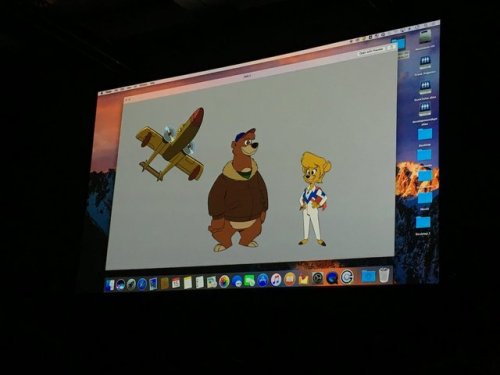
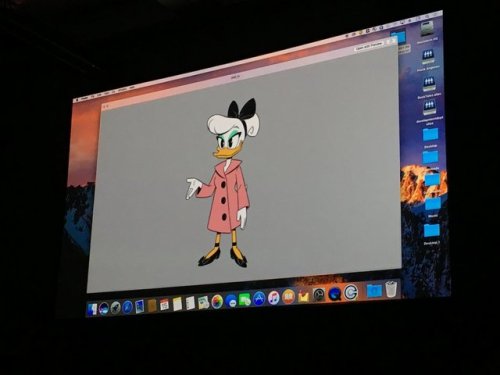
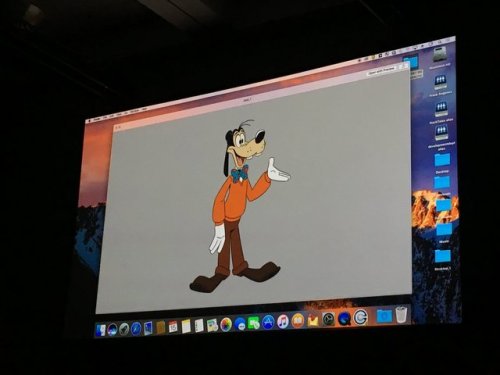
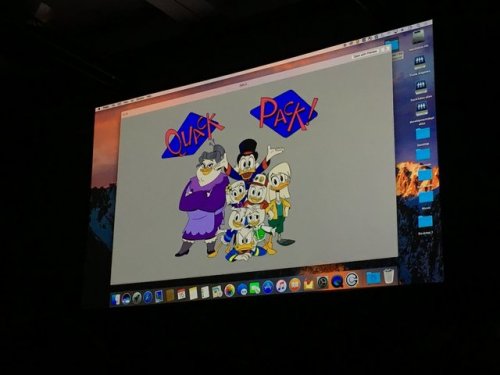
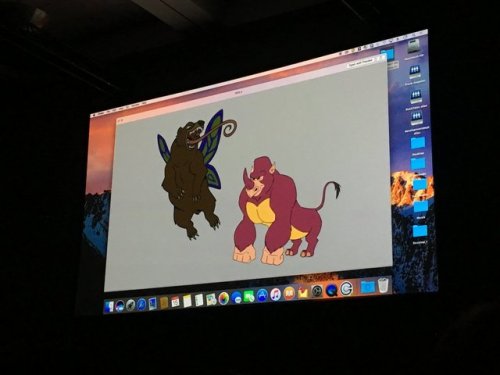
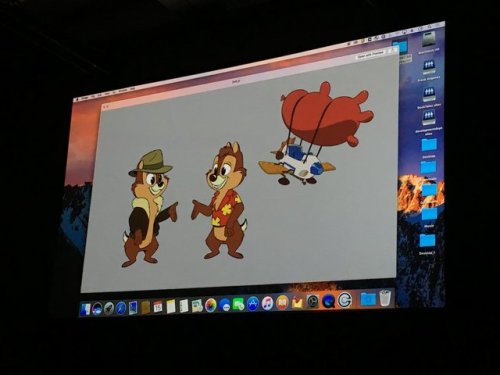

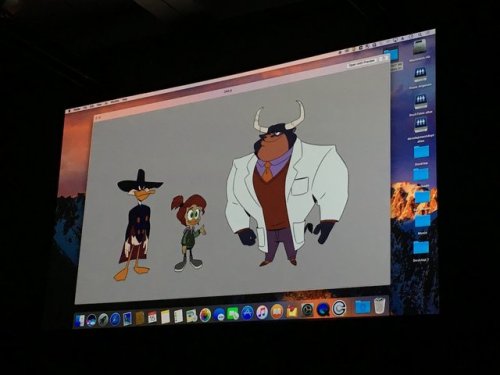
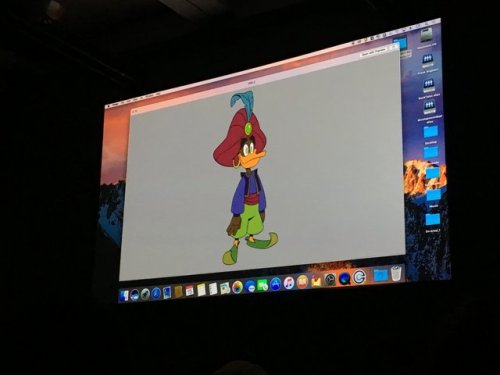
DuckTales Creates Its Own Disney Afternoon Cinematic Universe In Their Third Season
DuckTales will add to its ever-expanding ensemble with appearances from Gadget, Chip, Dale, and Monterey Jack from Chip ‘n Dale: Rescue Rangers, a grown-up Kit and Molly from TaleSpin, Gosalyn Mallard from Darkwing Duck, and more. All three shows, famous for their prime spots on Disney’s ‘90s animated afternoon programming block, have slowly but surely made their presences known on the modern DuckTales; recent introductions of characters like Drake Mallard and Don Karnage have only primed audiences for more familiar faces from the Disney Afternooniverse.

{Charon in Wonderland!}
Click for better quality

We’ve lost a truly remarkable treasure. Rest in peace, Russi Taylor. Thank you for gracing generations with your talents.
Let’s talk about Hong Lu’s poster

Summary:
Introduction
The paifang
Where is Hong Lu?
The reality of Hong Lu
{Skip the introduction if you’re only interested in the analysis of the character of Hong Lu and his poster}
I/ Introduction
Today I would like to offer you an analysis of Hong Lu's character poster. Although it is difficult to know what these character posters seek to show, apart from presenting characters, it is clear that each of them possesses clues about the sinners’ past and especially where the character represented comes from.
For example, we could see the pallid whale destroying the Pequod on Ishmael's poster, although it was easy to make the connection with Moby Dick, the poster also showed us that Ishmael had a history with a white whale and was a survivor of a shipwreck.
I am not sure if all the information is equally valuable according to the posters because, for example, Sinclair's poster is quite enigmatic and does not really show a specific event or place, or at least I do not recognize it.
But that does not stop me from believing that what is depicted behind the sinners is supposed to be related to the sinner, yes, but also, I think, related to a wing or place in the city that was important in the sinner's past.
I even wonder if the moment/place represented is not supposed to represent the place where the sinner decided to join the company.
Why do I say this? Well, you can see behind Rodion's character a casino setting, whereas her ego and space generated by the golden bough were affiliated with a world of ice. So why does Rodion's poster show her in front of an environment reminiscent of a casino? Perhaps it is to evoke her love for gambling as well as her ability to bluff and her desire for money, but if we look at Rodion's photo in the identity archive menu:

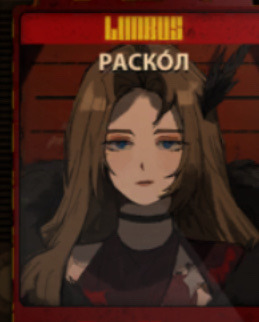
We can see Rodion in an outfit we have never seen her in before, an outfit that closely resembles what someone might wear at a casino. We have never seen how Rodion was recruited by Limbus Company, but if we follow the logic I just proposed, Rodion would have been recruited in a casino.
This logic seems credible and yet doubtful when we look at the case of Yi-sang.
For the moment, Yi-Sang is the only sinner whose recruitment by Limbus Company we know:
We know he was coming out of the laboratory where he was held by Gubo, the same laboratory we can see behind him on his poster.
But here's the catch: this is how Yi-sang was dressed when he met Faust VS versus what Yi-sang looks like on his photo in the identity archive:

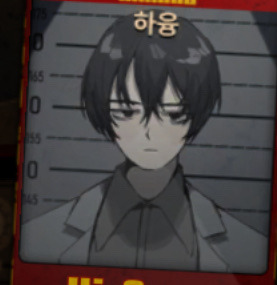
But hold on! I may have an explanation for this difference:
Yes, in the first image, Yi-Sang is not wearing his scientist coat, but he is indeed wearing the gray shirt, and I think Yi-Sang was indeed dressed with his coat initially, I think he just took it off in the left image.
So yes, it sounds like a lame excuse, but look at how Yi-Sang was dressed before this scene (when he was held captive).
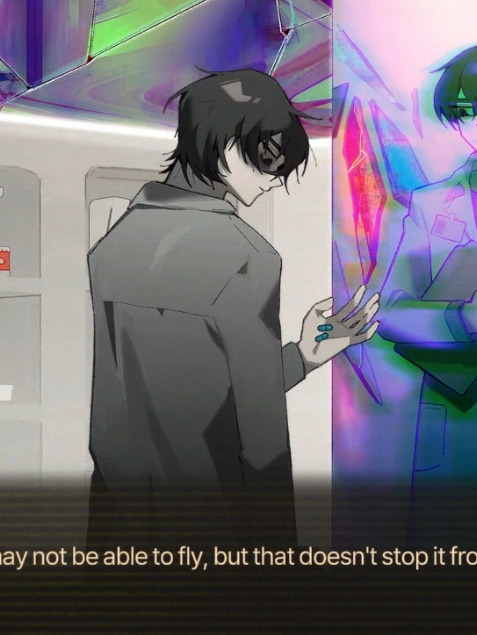
Boom, there it is, that scientist coat. Yi-Sang was indeed dressed as he was in that laboratory when his photo for the company was taken.
But here's the second little hiccup: we don't know how much time separates Yi-Sang's escape and his encounter with Faust...
But if what is depicted behind the sinners is not toward the place/moment where he was recruited by Limbus Company, then I think the place depicted behind the sinner is still a place/moment that shaped the sinner and convinced them to join Limbus Company.
II/ The Paifang
After this brief analysis that raised many questions, I would especially like us to keep the idea that what is depicted behind Hong Lu is related to him and the wing (or other place in the city) where he comes from.
Let's continue:
To make the understanding and analysis of the poster simpler, I decided to divide it into 6 zones:
Red: character
Dark blue: background area with tall buildings —> the city / what is behind the paifang
Purple: Paifang
Light blue: distorted and highly colorful area / portails
Orange: what surrounds the sides of the paifang
Green: the ground and what is in front of the paifang

Even if sometimes I won't do it, I will now also use this color code to target specific areas of the poster when needed.
Well, first of all, I'm going to talk about the purple area, which is everything related to the Paifang, which is a very important element of this poster:
This Paifang, which looks like it's made of (red?) wood, seems to be surrounded by tall walls as we can see in the orange area.
So it seems that this Paifang is the only entrance and exit between two spaces. Indeed, if this Paifang is surrounded by walls and (assuming) they extend over a long distance, we can quickly conclude that this passage is the only one that could allow someone to enter or leave a closed space (we will come back to these ideas a little later).
Returning to the Paifang, it seems to perfectly fit the definition I found of a Paifang: "A Paifang is a traditional Chinese architectural structure in the form of a portico or arch, usually placed at the entrance of important places such as cities, temples, or properties. These symbolic gateways are often richly decorated and serve as monumental entry points."
I think the main idea to remember is that this Paifang is a gate/a means of passage, and I think it is the only gate allowing travel between the two spaces it separates.
But what does this gateway separate? Well, I think we have an answer with the inscription in the middle of this Paifang:

Indeed, what is written in the middle behind Hong Lu is this: 境幻虚太 (Jing Huan Xu Tai), we can recognize 4 distinct characters:
境: Realm
幻: Illusory
虚: Void
太: Great
But what is most surprising is that this phrase is actually written backward; indeed, in Chinese, it should be written 太虚幻境 (especially when we know what this combination means, especially in Dream of the Red Chamber), and here it is written as if it had been reflected in a mirror. We know that mirrors play a very important role in Limbus Company, but we will come back to this idea of a mirror a little later.
{Update : I was informed that the ordering of character written on the paifang is actually correct for traditional Chinese writing and for when the characters have to be placed horizontally (especially when you have to write on a space which does not really allow you to write in the vertical like on this paifan). The fact remains that the name of Hong Lu's weapon is therefore written in backward, so why? I don't really have an explanation now... and I have to admit that I still like my first analysis and I still think it is (a little) relevant in a way, so I invit you to keep reading (while keeping this in mind)}
For now, I would like to return to the meaning of what is written on this Paifang; indeed, once the combination of these 4 characters is reversed, it refers to a very important place in Dream of the Red Chamber: "Illusory Land of Great Void" or "Land of Illusion".
We can therefore conclude that this Paifang overlooks the "Land of Illusion" and separates/is the gateway between these two worlds, which are the "Land of Illusion" and, I think, the city.
Which is reminiscent of its “equivalent” in the novel since in the novel there is also a mention of a gate which separates the world of illusions from the rest or at least which indicates its entry point
{Side note: Strangely, this is not the only time that "太虚幻境" appears on the poster since it also appears just at the bottom right, and yes, "Land of Illusion" is also the name of Hong Lu's weapon, but that's not all! It is of course also the name of his EGO.
We can therefore see that the "Land of Illusion" is used to define many things related to or belonging to Hong Lu.}
In the novel Dream of the Red Chamber, The Land of Illusion is a domain where illusions and fantasies come to life. However, despite its enticing and enchanting appearance, this fictional world is also fraught with dangers and traps as it can lead individuals into deceptive illusions and prevent them from perceiving the truth.
However, a very interesting analysis of the Land of Illusion parallels this place with the Prospect Garden, which is the garden where Baoyu lives with his cousins and servants. It is the setting for many events in the novel and is also a haven of peace cut off from the rest of the world where its inhabitants can indulge in their idle and luxurious lives.
When Baoyu first visits this garden, he feels like he has been here before, and indeed, this garden actually reminds Baoyu of the place he visited in his dreams: the Land of Illusion.
A fantastical literary garden devoted to pleasure and love, which recalls the hero's dream of love and evokes in him a sense of the uncanny, will lead the reader to realize that Prospect Garden is the Land of Illusion. Eden, emptied of humanity, may remain a pristine ideal.
The Prospect Garden becomes a Buddhist allegory of experience. It blooms and withers with the ebb and flow of human desires and longings, but it is also a fictional world, imagined, the stuff of dreams.
The Prospect Garden is the earthly manifestation of the Land of Illusion, just as Baoyu is the physical earthly reincarnation of the stone.
III/ Where is Hong Lu?
After discussing what The Land of Illusion is and what this Paifang separated or rather where it leads to, it's time to ask a question: on which side is Hong Lu on his poster?
The Paifang already gives us an indication of this: since we can read "Land of Illusion" backward.
So I think we can deduce that Hong Lu is currently on the side of the "Land of Illusion" because if we follow the theory that the writing on the Paifang is reversed because Hong Lu is in a mirror world, then it's easy to guess that on the other side (the non-visible face) of the Paifang, we could read "The Land of Illusion" written correctly because this Paifang does lead to the "Land of Illusion."
To support this assertion (that Hong Lu is on the side of "The Land of Illusions"), I invite you to look at the dark blue area.
We can see tall buildings bathed in a red/black color; I think this modern aesthetic and these colors are supposed to remind us of the city, whose red color is often associated with —> just look at the map to notice this.
But that's not all: the color red is associated with the red dust by which Buddhism refers to the earthly realm, which contrasts sharply with the luxury brought to mind by the vernacular use of red.
Red dust is a symbol of the impermanence and transience of human life in Chinese philosophy.
It represents the reality of life as transient and ephemeral, reminding individuals that everything in this world is subject to change and disappearance. This notion is often used in Chinese literature and poetry to express the human condition and the importance of fully living each moment, knowing that nothing is permanent.
Red dust is used to talk about our world and our existence on it, which is but a short-lived illusion filled with suffering, to talk about the mundane world.
In Limbus Company, this world of Red Dust, this illusory world, is the city, and this bubbled paradise is "The Land of Illusion."
But how do we know that Hong Lu is indeed walking on the water of what I have been calling "The Land of Illusion" all this time?
Well, a clue might give us the answer; I invite you to look at the green area.
We can see that Hong Lu is walking on water, which already evokes the notion of "reflection" and this idea that The Land of Illusion is a mirrored world of the world of red dust, as is "The Land of Illusion" in the novel, but that's not all.
I will have to step away from Hong Lu's poster for a moment to look at an image present during the Limbus Company launch trailer.

Although nothing I'm about to say has been confirmed, I don't think it's too farfetched to say that we can see in this image a past version of Hong Lu, before he joined the company when he was at home, probably the Jia family manor (or at least its version of LCB).
What's interesting about this image is the color of the sky: this blue fading towards turquoise. We've seen it elsewhere before:

And yes! I am convinced that this blue space we can see in the cutscene of Hong Lu's EGO is supposed to be the sky from his home. And what is Hong Lu's EGO called? Land of Illusion.
Furthermore, I think that this blue sky is meant to contrast with the red sky of the city. Thus, the separation between the two is even more accentuated, as it was with the Paifang that clearly separated the two realities.
So, I believe that we can conclude that Hong Lu lives in the Land of Illusion.
This idea that the world in which Hong Lu lived is "The Land of Illusion" is emphasized by another detail: the reflection of the moon in the water.
In Buddhism, the image of the moon in the water is often used as a metaphor to illustrate the illusory nature of reality or the nature of conditioned existence. This metaphor is often associated with the practice of meditation and understanding the nature of the mind.
The moon in the water appears clearly and distinctly, but it is unstable and transitory, as it is subject to the movements of the water. Similarly, in daily life, what we perceive as reality is often changing, impermanent, and conditioned by multiple factors.
This metaphor thus emphasizes the importance of recognizing the illusory and impermanent nature of reality and not attaching to appearances or transient phenomena. In summary, in Buddhism, the image of the moon in the water is used to illustrate the illusory nature of reality and to encourage the practice of meditation and the search for the true nature of the mind.
I think that this image of the moon in the water is meant to make us understand the true nature of the place where Hong Lu walks: it is The Land Of Illusion, which is nevertheless Hong Lu's reality.
IV/ The Reality of Hong Lu
Indeed, I will now delve into an explanation, and I will try not to get confused. For this, we must now look at a very important excerpt when analyzing the novel Dream of the Red Chamber:
"Truth becomes fiction when the fiction's true; Real becomes not-real when the unreal's real."
This idiom is not just written anywhere in the world of the novel; it is located on the Paifang serving as the border and gateway to the Land of Illusion, and there is a good chance that it is also on the Paifang that we see behind Hong Lu.
This idiom makes us understand that reality is actually fiction and that fiction is actually the real world. It invites us to reverse our perception of realities and to consider what is called "real" as false and what is called “false” as real.
Here, I think, it is about understanding that Hong Lu's reality, which is (in) the Land of Illusions, is actually a fictitious and false world. Where the city, which is an unknown and completely foreign world to Hong Lu, which could be seen by him as a fictional world that is not real, is actually the real world, whereas the world he considers real is (his home) actually a false world.
To be honest, I cheated a bit because even though the reflection of the moon in the water is used to evoke a world of illusion for Buddhism, and even though I think it can indeed refer to the fact that Hong Lu is on the side of the "Land of Illusion", I think above all that this reflection is meant to make us understand that this world where Hong Lu is located has an illusory nature of reality + a nature of conditioned existence.
This brings me to talk again about Prospect Garden, which I think is the place where Hong Lu grew up but is especially the place from which Hong Lu must escape.
Prospect Garden is, as mentioned earlier, the Land of Illusion materialized in the real world and is therefore a domain where illusions and fantasies come to life, that is, a place where Baoyu bathed in luxury and idleness.
In "Dream of the Red Chamber," Jia Baoyu is often faced with symbolic choices between staying in Prospect Garden, which often represents the materialistic world and earthly pleasures, or setting out in search of spiritual enlightenment. His journey to enlightenment often involves leaving the illusions and distractions of the material world represented by Prospect Garden. Thus, it is often suggested that to achieve enlightenment, Jia Baoyu must move away from Prospect Garden and seek a true understanding of himself and the world around him.
At the end of the novel, Jia Baoyu (the figure who is supposed to have inspired Hong Lu) realizes the illusory nature of his life and realizes that Prospect Garden was only a world where he was trapped by the illusory pleasures of life, and that is why at the end Jia Baoyu decides to break with his previous life and leave the garden (as well as the rest of his family).
I think we are going to go to Hong Lu’s home to realise that he was literally living in a bubbled space and we will go to the Land of Illusion which, I think, will also be the Prospect Garden.
And the fact that the words are reverse like if they were reflected in a mirror helps, I think, to support on the idea that Hong Lu's world/reality is a reflection of the real world but where everything is distorted/inverted (a symbol I also think of Hong Lu's ignorance and his strange vision of the world) and that this illusion glass will break little by little
We also have to remember the sentence
"Truth becomes fiction when the fiction's true; Real becomes not-real when the unreal's real.
And remember that what is true is actually false / wrong according to this. So maybe, if this idea from the novel is kept, the world where Hong Lu is living is just a big lie where everything is just a smoke screen and that Hong Lu is living in denial, prefering to accept this illusion so that his world / vision of reality or truth is not shattered.
So, I think that Hong Lu, during his chapter, will have to understand that his reality is not true and learn to leave the land of illusion to find the truth because it seems to me that one of the theme of Hong Lu will turn around the theme of truth and reality.
Is Hong Lu the tea ?

I really like this title but of course I'm not trying to imply that Hong Lu is literally tea but I would like to talk about a potential foreshadowing or metaphor (?) concerning Hong Lu and which takes place in the story Liu association 5.
It is not so much a theory but more of an analysis which serves to point at elements which seem to reinforce ideas we have about Hong Lu and to better understand or even guess what his canto will look like.
Summary:
Hong Lu is = to the tea of this story
The objectification of Hong Lu
Hong Lu is like water
Spoilers further below
I/ Hong Lu is = to the tea of this story
It's time to talk about the frames that initiated this over-analysis.



Frames that appear to be a rather trivial conversation about tea leading to a humorous exchange between the three characters. But is that really all there is to take from this exchange? What if there was a foreshadowing or/and a metaphor hidden behind it?
It's true that the dialogues at the end of this story, where Hong Lu discusses the ability of his left eye to shine, is more memorable. I admit that it was also the part that caught my attention the most at first. However, upon rereading this passage, I find this exchange very interesting to analyze.
So here we go:
I've seen some people discussing that Hong Lu's age is around 30 years (I think), but I couldn't find the post, so I'll rather assume that Hong Lu is between 20 and 30 years old, as many people (including myself) think.
And this is where it all begins, because when I see Hong Lu talking about a tea "fermented for over 20 years in an ideal environment" and described as "nigh priceless," I can't help but wonder if there's a direct parallel to be made with his character.
We already know that Hong Lu has lived a sheltered life, presumably since forever, in an environment isolated from the rest of the world by and with his family, until finally he joined Limbus Company, which became (it seems) his first experience of the outside world.
If we follow the idea that, Hong Lu is over 20 years old and that him joining Limbus Company was his first interaction with the outside world, then we can see his arrival at the company as if he was taken out of the closet, like the tea that was brought out after more than 20 years of fermanting in this "ideal environment".
It remains to be seen whether Hong Lu escaped this "closet" or if he was brought out for a particular reason.
All this to say that Hong Lu's life until the game’s events could be seen as that of tea fermenting for years before serving its purpose.
We can therefore draw a parallel between the fermentation of the tea Hong Lu talks about and the type of life Hong Lu has led so far: Hong Lu is like the tea, and perhaps this image can give us or confirm what Hong Lu's life was like and how it is meant to be seen: that Hong Lu was fermented within this familial environment to produce an individual nigh priceless.
[SD: Now, if I use the term "fermentation/fermented" to talk about Hong Lu, I will, of course, be referring to his sheltered life with his family, but it will be easier to use the same term to talk about both the tea and Hong Lu and to support the parallel.]
What's also interesting is that the ones behind the fermentation of the tea and Hong Lu happen to be the same: Hong Lu's family.
This, I find, reinforces the legitimacy of this comparison.
We can also note that Hong Lu often talks about the tea he savored while still living with his family, so in a way, tea is a reminder of home for Hong Lu or more precisely, his past life.
I know it's not much, but it could still be an indication inviting us to make this comparison or to pay attention to details where tea is mentioned.
Returning to this idea of fermentation, whereas we know that the fermentation of this tea is supposed to give it a unique taste or/and a unique smell, it's hard to say what the goal of Hong Lu's "fermentation" was.
Perhaps to give him a unique "taste," which for Hong Lu would equate to a predefined personality and/or identity corresponding to his family's expectations.
It may also correspond to the fact that Hong Lu was kept isolated from the rest of the world because: rich people's mentality that doesn't want to coexist with those they consider inferior. Who knows…
But ... I can't help but think that there's another reason for this, but it's still too early to really know which one.
II/ The Objectification of Hong Lu
Small parenthesis: Before continuing with the analysis of the tea, I think it's interesting to dwell on this parallel between Hong Lu and a precious object that might make us understand that the question of objectification is a theme that will be relevant for his character.
After all, if in this story Hong Lu is also supposed to be paralleled with, or even "be" the tea, then his status is reduced to that of a precious object brought out for special occasions or to boast to guests.
Moreover, in the same story, Hong Lu lets slip a phrase that might make us think he is reduced to the status of a precious object in his family's eyes, more precisely a precious stone.
Indeed, his heterochromia wouldn't be due to nothing since, if we follow the original plot of *Dream of the Red Chamber* from which his character is drawn, the color and glow emanating from Hong Lu's eye should be due to him being born with a magic jade in his eye (similar to Jia Baoyu (the character Hong Lu is supposed to be inspired by) who was born with a small magic jade stone in his mouth)).
So, a magic jade stone would be in Hong Lu's left eye or something equivalent that might, at least, looks like a jade stone.
And this discussion around his eye (and in a way, his "jade") is probably the first clue showing us that Hong Lu is reduced to this small stone that is the (only) thing giving him value (for his family).
Returning to the idea of objectification, this seems to be supported by the phrase I mentioned at the beginning of this parenthesis:
"To them… I was a gem of a child"
Which might be more literal than one might think.
What's interesting is that this phrase has the appearance of a "false truth" and of something trivial that might be more nightmare fuel than one might have thought if taken under a certain angle.
This seems to be a recurring mechanism in Hong Lu's character (and ties in with the novel's theme) where the first appearance of something can hide the exact opposite. This trivial phrase suggesting that Hong Lu was pampered by his family because he was their little treasure might actually be a phrase hiding a much crueler and darker reality:
That Hong Lu was literally a precious stone to his family and that his value as a human being was reduced to his eye, which seems to be what his family reduced his being to, if we follow this theory.
And Hong Lu seems to be trying to belittle or/and hide his situation.
Hong Lu was summed up to the precious stone in his eye, and that's all he was to his family: a precious gem.
And I mean, I'm fascinated by this atmosphere of falseness that seems to surround Hong Lu: everything seems to be a mirage, an illusion (pun intended).
No, but seriously, I don't know if these are coincidences or over-interpretation, but most of Hong Lu's stories and dialogues (especially those mentioning his family) are steeped in this atmosphere of smoke and mirrors.
It's all the more fascinating that these moments seem to be a glimpse, a warning of what Hong Lu's canto will be: deceptions everywhere. I find it impressive that even in Hong Lu's mechanics / construction and writing, everything brings us back to this impression that we're facing an illusion.
This last paragraph might not have been very clear, but I'm having a bit of trouble describing my thoughts, hope you’d get a part of what I meant.
III/ Hong Lu is Water
So far, this served to show that it was possible to draw a parallel between what's said about the tea and Hong Lu.
It's time now to look at the last element that might give us more to understand how Hong Lu sees himself or the shape his identity crisis will take.
Indeed, we know that each sinner, through their canto, gets through a sort of identity crisis.
They reconnect in a certain way with their identity and face or evolve from a toxic way they had of dealing with their vision of themselves and their identity: Gregor existed only through his mother's expectations and his trauma related to the war and him being dehumanized, Rodya lived through her guilt feeling responsible for what happened to her neighborhood and the view Sonya had of her, Sinclair also lived with his guilt but also his anger towards Kromer, Ishmael lived only for revenge on her captain, etc...
Well, it is still debatable whether each sinner listed and from future cantos are/will be at the same stage of "personal development" and if they all managed/will manage to detach from their past to live for their future (cough, *cough* Gregor).
But I think that, through their Canto, the sinners learn to reconnect (at least a little) with their identity, their true self by "eliminating" what hindered this recognition so far: Herman, Kromer, Ahab...
And I think that's the essential: this reconnection with oneself.
Moreover, I'm not saying that each sinner has renounced their past, forgetting it in a drawer to live entirely differently without it impacting them, but that they have learned to live for a future rather than for and through their past.
A canto thus serves (in part) to help the concerned Sinner reconnect with their identity and their vision of their life/self.
But how would this apply to Hong Lu?
On one hand, I think first by breaking this image of an object that Hong Lu may possess in his family's eyes and perhaps in his own if he was raised with this vision of himself.
But also by tackling this illusory image of himself that Hong Lu displays.
After all, despite the rarity of this tea, the only remark Faust makes is:
"Despite the intense scent, the taste is essentially blank…" and she emphasizes this again by calling it "scented water."
I find that this image of tea being "scented water" is perfectly reflecting the idea that it's a deception, that what we are presented with is actually an illusion.
Indeed, this description could be an excellent example/metaphor of what an illusion is:
"A false interpretation of what one perceives. and Appearance devoid of reality."
The reality of this tea, which is its taste, is masked by an illusion, its scent, which comes across much more intensely to drown out this reality.
I believe this description underscores one of the themes that I think will be very important regarding Hong Lu: this often blurry distinction between what is real and what is an illusion and the idea that what appears true is false, and what appears false is true. This echoes one of the most important passages in the book from which Hong Lu's character is drawn:
"Truth becomes fiction when the fiction's true;
Real becomes not-real when the unreal's real."
We have seen many examples with Hong Lu where what he shows/says is either the opposite of what we thought, or the first impression was ultimately not the reality. For instance, when Hong Lu tells his story on the abandoned ship, we first think it’s a horror story before the twist reveals a truth radically opposed to what we thought.
The fact that Faust refers to water as a base is logical since we’re talking about tea, but it could also be an intelligent way to create a metaphor/foreshadowing with Hong Lu's behavior, which remains quite subdued and sometimes seems deceptive/false.
Moreover, this metaphor is made through an element that is more than perfect to describe someone who only reflects an image and is never their own reflection or lacks personality: water.
Transparent water can symbolize a lack of true substance or character. Similarly, a person whose personality is transparent can be perceived as lacking authenticity or sincerity. This transparency is masked by a scent to try to hide this emptiness and show the opposite of what it really is.
It’s a bit like Jack Vessalius in Pandora Hearts for those who know it.
Oswald describes Jack as water, as someone who only reflects an image, without true authenticity or a real identity of his own. In a sense, he is always playing a role.
It is also always interesting to remember that one of the most important characters in the novel "Dream of the Red Chamber," Lin Daiyu, who has a close relationship with the main character, Jia Baoyu, is a character associated with the element of water. She spends most of the novel being described as weeping or crying, and this is due to the “debt of tears” she promised to repay to the jade stone that helped her in her previous life when she was a flower. Lin Daiyu, being the reincarnation of the flower, repays her debt by crying in her new reincarnation. Hence her association with water.
But let’s get back to our main point.
Next, what’s interesting is the sentence Faust uses right after to criticize the tea she was served:
“I must wonder though, is there a good reason to pay such a stiff price for… for lack of a better word, scented water.”
We try to mask the transparency of this water with a strong scent, but in the end, it remains an illusion and doesn’t fix the real “problem” of this tea: it’s tasteless, without personality. Could Hong Lu then be just scented water that conveys an image filled with scent (that of a young aristocrat who has had an easy life and has been immersed in wealth all his life) to mask his lack of identity or self/ownness (is that a word)?
Hong Lu is merely scented water; he emits a strong and misleading scent that seems to suggest a certain vision he is or/and others have of him, but in the end, he remains just water to which a scent has been added. Perhaps this water couldn’t develop its own taste because it has been fermenting for over 20 years in an ideal environment, imposing on it a scent that has defined its entire identity.
This could also be seen as a metaphor that ties back to the idea of smoke and mirrors and that this image of a dandy that comes from Hong Lu is just an illusion whose scent is stronger and masks his real "taste".
And it also could be a way to reinforce this idea that Hong Lu try to hide or belittle the/his reality with a stronger "scent", masking the reality with something more noticeable even if it's just an illusion.
Hong Lu should then, during his Canto, learn to renounce the bases that has given him a bit of scent until now, what allowed him to be more than just water, to have an identity, to find a new one/ his true self that would be much more authentic and real.

{Tired naivety}
*manifesting Hong Lu’s past*
There is no doubt in my mind that behind all this cheerfulness is hidden a horrible backstory.
-
 aline1701 liked this · 9 months ago
aline1701 liked this · 9 months ago -
 kreepyveebs liked this · 10 months ago
kreepyveebs liked this · 10 months ago -
 theanimekid liked this · 1 year ago
theanimekid liked this · 1 year ago -
 mango-ti liked this · 1 year ago
mango-ti liked this · 1 year ago -
 koomonster liked this · 1 year ago
koomonster liked this · 1 year ago -
 numblilbug06 liked this · 2 years ago
numblilbug06 liked this · 2 years ago -
 sporadicchaosprincess liked this · 2 years ago
sporadicchaosprincess liked this · 2 years ago -
 teeth-cable liked this · 2 years ago
teeth-cable liked this · 2 years ago -
 janet27ophh liked this · 2 years ago
janet27ophh liked this · 2 years ago -
 geminihunter13 liked this · 2 years ago
geminihunter13 liked this · 2 years ago -
 charlies-hope liked this · 2 years ago
charlies-hope liked this · 2 years ago -
 hauntedcomputercycle liked this · 2 years ago
hauntedcomputercycle liked this · 2 years ago -
 beginngsining liked this · 2 years ago
beginngsining liked this · 2 years ago -
 hanami-1234 liked this · 2 years ago
hanami-1234 liked this · 2 years ago -
 angelum-lucis liked this · 2 years ago
angelum-lucis liked this · 2 years ago -
 imawednesdaygirl liked this · 2 years ago
imawednesdaygirl liked this · 2 years ago -
 caffinateddragon-blog liked this · 2 years ago
caffinateddragon-blog liked this · 2 years ago -
 lucaespecial liked this · 2 years ago
lucaespecial liked this · 2 years ago -
 inpolariis liked this · 2 years ago
inpolariis liked this · 2 years ago -
 lamina-tsrif reblogged this · 2 years ago
lamina-tsrif reblogged this · 2 years ago -
 lamina-tsrif liked this · 2 years ago
lamina-tsrif liked this · 2 years ago -
 chromatic-lamina liked this · 2 years ago
chromatic-lamina liked this · 2 years ago -
 mizuki-t-a--art liked this · 2 years ago
mizuki-t-a--art liked this · 2 years ago -
 zuidas liked this · 2 years ago
zuidas liked this · 2 years ago -
 amaliatheartist liked this · 2 years ago
amaliatheartist liked this · 2 years ago -
 calitsnow reblogged this · 2 years ago
calitsnow reblogged this · 2 years ago

Hi ! |She/her| If I'm not drawing I'm probably writing /please do not repost my art without crediting me/
137 posts